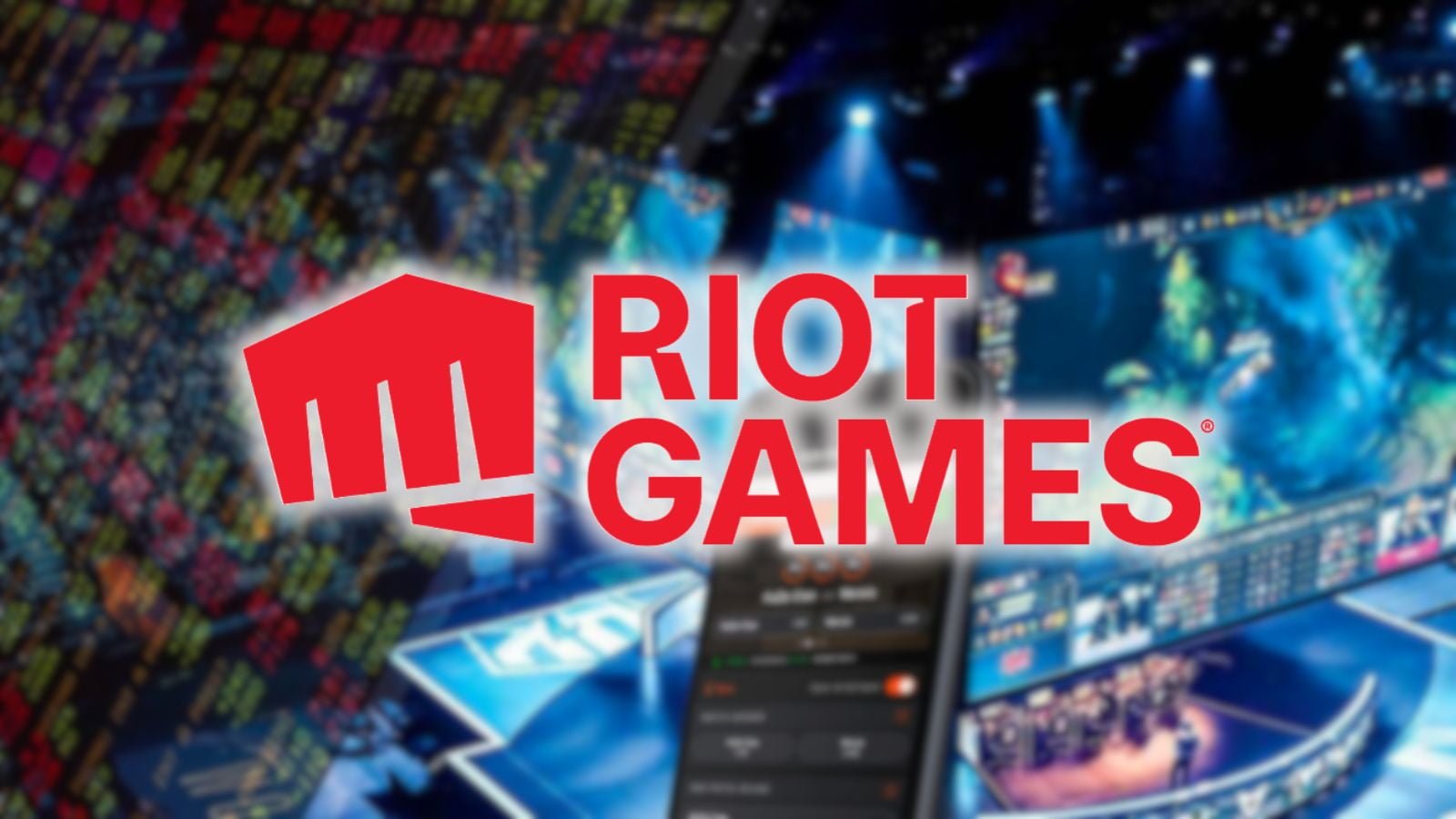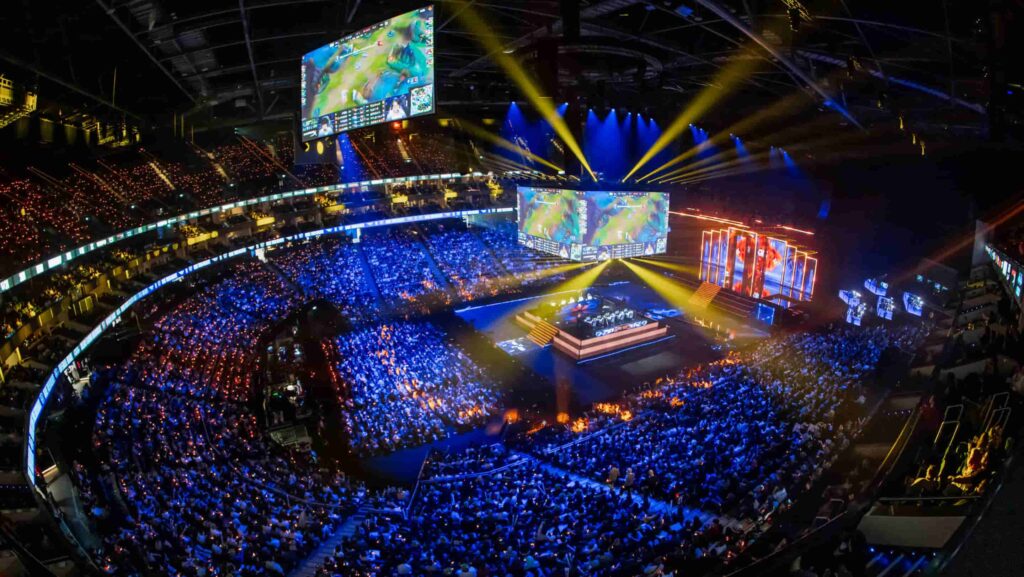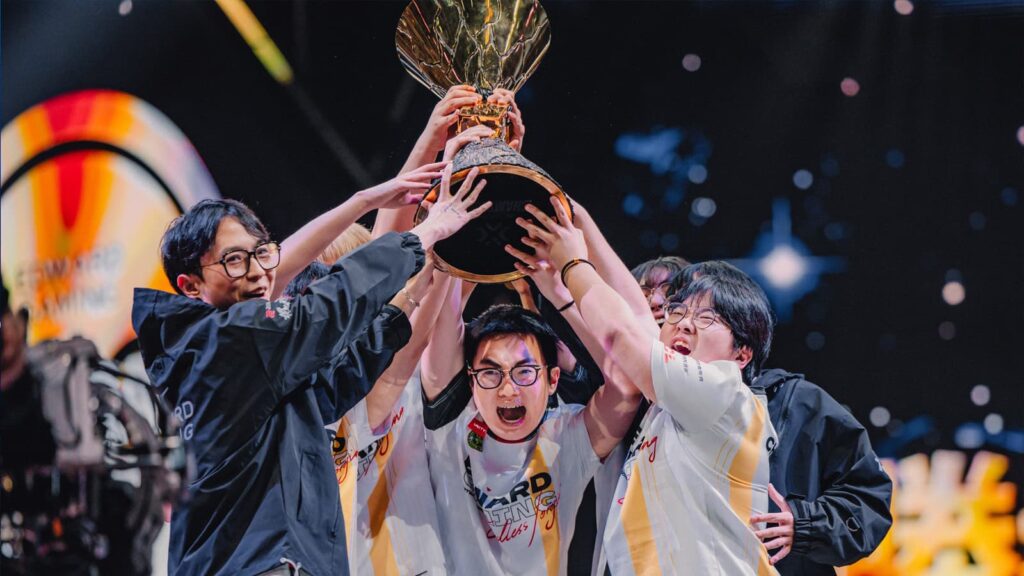
Riot Games is officially allowing League of Legends and VALORANT teams in the Americas and EMEA Tier 1 scenes to sign sponsorship deals with sports betting companies, a landmark policy shift aimed at creating new revenue streams for its partner esports organizations.
John Needham, Riot’s president of publishing and esports, made the announcement on June 26 through a detailed article outlining the company’s intent to embrace esports betting partnerships with “safeguards to protect competitive integrity and the fan experience.”
“At Riot, we’ve always believed that building the future of esports means investing in a sustainable ecosystem, not just for today, but for the long run. That’s why we’re focused on supporting the players, teams, and the fans who fuel it all,” Needham said.
Riot says yes to betting sponsorships after ‘years of analysis’

Needham acknowledged that the decision to lift restrictions on betting sponsorships came after “years of analysis” and ongoing requests from teams. While betting has traditionally been a restricted category for Riot, mounting global engagement and the scale of betting around esports made it an issue the company could no longer ignore.
“Teams have asked us to reconsider our stance, and after years of analysis to ensure we got it right, we agreed it was time to open up this category to create more revenue opportunities for teams,” he explained.
He cited a report by Sportradar that revealed global betting turnover involving just League and VALORANT reached $10.7 billion in 2024. However, 70 percent of that occurred in unregulated markets, a concern Riot wants to address directly.
“We believe it’s better to engage in allowing betting sponsorships—thoughtfully, carefully, and with the right protections—than to sit on the sidelines while risks to fans and integrity go unchecked.”
Riot’s guardrails and integrity measures
To maintain the integrity of its esports ecosystem, Riot is rolling out a structured program with several layers of oversight:
- All betting partners must be vetted and approved by Riot.
- Only operators using official data from GRID, Riot’s esports data partner, will be permitted.
- Teams must implement an “Internal Integrity Program” that includes policy development, monitoring, and educational resources for responsible betting practices.
- Broadcasts will remain betting-free. Betting sponsors will not be featured on Riot-owned channels, segments, or jerseys.

“Integrity isn’t something Riot can uphold alone; it’s a shared responsibility across the entire ecosystem,” Needham noted. “Teams pursuing betting partnerships must have established an integrity program… and assess if this, like all other partnerships, makes sense for their brand and fans.”
Riot emphasized that a portion of its revenue from this program will be reinvested into its Tier 2 ecosystem, supporting the growth of emerging teams and talent. Initiatives include increased prize pools, new tournaments, and further development of integrity systems and educational resources for up-and-coming players and organizers.
Despite the policy shift, Riot is making it clear that betting-related content will be kept away from official broadcasts and social media channels. “The last thing we want to do is disrupt LoL Esports and VCT broadcasts with an influx of sports betting ads. So we’ve established at the onset that Riot-owned broadcast and social channels will stay betting-free, which means no ads, no sponsored segments from betting partners, and no betting partner logos on team jerseys,” Needham confirmed.
He added that each team will be responsible for how and where they feature their betting partners, in line with Riot’s sponsorship guidelines, platform terms of service, and local regulations.
Community and personal reaction to Riot’s decision
Riot’s move to open the door for betting sponsorships is easily one of the biggest business pivots the company has made in esports. And it comes at a time when the scene is desperately seeking more sustainable revenue models amid ongoing financial challenges.
“We believe that showing up in this space—responsibly—is better than letting others define it for us. We’ve said before that Riot is all in for the long term on our esports, and that means stepping into arenas like sports betting with an objective to both guide and protect our brands from bad actors by establishing what good looks like, while also providing an avenue for teams to benefit financially,” Needham said.
“With any new endeavor, there will be challenges, and if we need to make adjustments, we will. Please know our overall commitment is to do right by our players, teams, and fans as well as the world-class esports experience that we’ve built together and want to see thrive for years to come.”

Obviously, the announcement sparked a mix of reactions across the community, given how controversial betting has been in both traditional sports and esports.
In a comment on Riot’s post on X (formerly Twitter), one fan pointed out the irony of the timing, noting the recent betting-related match-fixing scandal in the VCT Challengers North America, a Tier 2 VALORANT league. “Crazy that we are getting an article about allowing gambling in Tier 1 LOL and VAL when we just had the bomb thrown on us about the potential of match fixing related to gambling in the Tier 2 scene. How is this gonna be any different besides more money?” they said.
Others criticized Riot for opening the door to a sponsor category that many associate with addiction and financial risk. “You are not doing it responsibly. You are promoting a harmful habit to a young audience. There is no way to promote betting responsibly,” one user said. Another added, “Massive L, gambling is something you’ve been increasingly supporting via gatcha systems. Now this. I don’t know why you want more young folks throwing away money and getting hooked onto something that can ruin their financial life!”
But not everyone was against the move. Some fans praised Riot for finally joining other major esports in embracing betting sponsorships. “Hot take but if you guys like LoL esports then you should be happy about this. Every esport has incorporated betting except LoL, and guess what esport is losing money fastest… LoL esports. This will keep the scene around longer and I personally want the esport to last,” one fan said.
Others echoed the sentiment. “It’s exciting to see Riot explore this pathway, and while there is a lot of grey area they’ll need to explore, I have faith Riot can do so responsibly,” a supporter commented. “How naive are LoL fans to think that the competitive is profitable for orgs? Do they think that they’re losing money for free just for viewers’ entertainment? The best part is if Riot put esports on paywall, none of these so-called ‘fans’ would pay to watch. Finally a big W,” another fan argued.
Personally, I’m not into gambling, but I see the rationale behind Riot’s calculated and tightly controlled approach here. The reality is, only a handful of esports orgs are financially sustainable right now. The rest are trying to stay afloat while dealing with growing operational costs and shrinking viewership since the post-pandemic cooldown.
With all the shutdowns and layoffs we’ve seen throughout the esports industry, it’s obvious that orgs need new, reliable sources of revenue. And if betting sponsorships are going to be part of that, then Riot’s approach, with solid safeguards and integrity measures, seems like the right blueprint. To all the other developers of esports titles out there, you should be paying close attention and taking notes.







